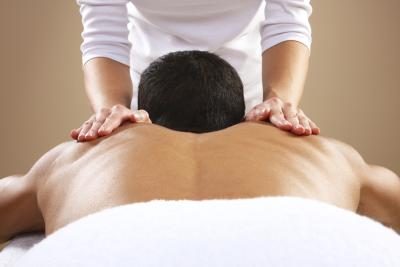
Rolfing is the manipulation of soft tissues and it involves movement education which organizes the whole body in gravity. It was developed by Dr. Ida Rolf, a biochemist, who believed that manipulation of the soft connective tissues or fascia and gravity can provide proper body alignment permanently. It is often considered as a form of deep-tissue massage, affecting the body’s structure and posture through manipulation of the connective tissues. The benefits of rolfing include conservation of body energy, efficient use of muscles, and building refined and economical patterns of movement, reducing chronic stress, reducing spinal curvature and enhancing neurological functioning.
According to Dr. Ida Rolf, rolfing is based on the proposition that the human body is basically an energy field that operates on the earth’s greater energy. Rolfing works on organizing the body around an axis perpendicular to the earth, reaching its optimum functioning to be parallel to the pull of gravity. Rolfing aims to restore the balance of the body’s arrangement to it axis, to help facilitate improvement in movement, balance, and posture. All people can benefit from Rolfing Durango most especially chronic pain sufferers, athletes and dancers, and aging people. Physical injury and stress can impede movement, and rolfing helps in lengthening the connective tissues for transforming the body back into proper alignment, and increasing fluidity and efficiency in movement. Rolfing is popularly used for treating chronic pain, releasing painful compression associated with tension headaches, backaches and neck pain. As people age, muscles and joints become stiff, causing the aging appearance as evidenced by curvature in the upper back, head that tilt forward, hip extension and loss of ankle movement. Rolfing can help slow the aging process because muscle and joint stiffness are reduced and slowed to create a feeling of youth and vitality.
Rolfing involves performing a progression of ten sessions, or referred to as the “recipe”, and the combination of passive and active movement retraining. The duration of a rolfing session usually lasts sixty to ninety minutes, with the client lying on a table, standing and sitting. Rolfer can be painful at times, and some adults may feel intense sensation during the treatment or soreness after the session, but the techniques can be done gently for elderly and children. Rolfing helps in improving body alignment and functioning, and it creates overall balance and ease throughout the entire structure, rather than merely focusing on body areas presenting with tension, thereby alleviating chronic strain patterns, and reducing stress and pain. If you want more information about rolfing techniques, you may visit our website.
For more facts about rolfing, visit this website at http://www.huffingtonpost.com/news/rolfing/.